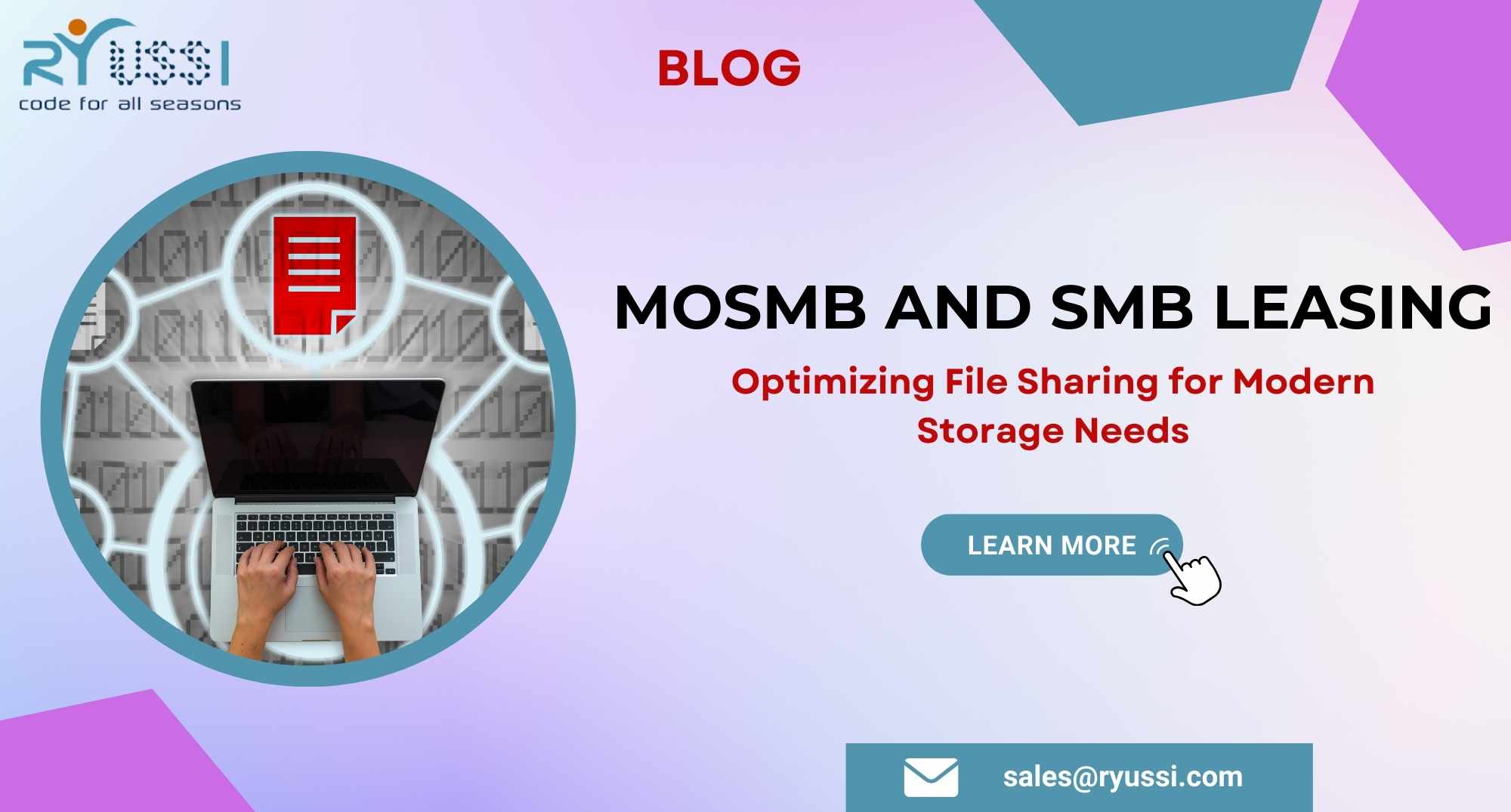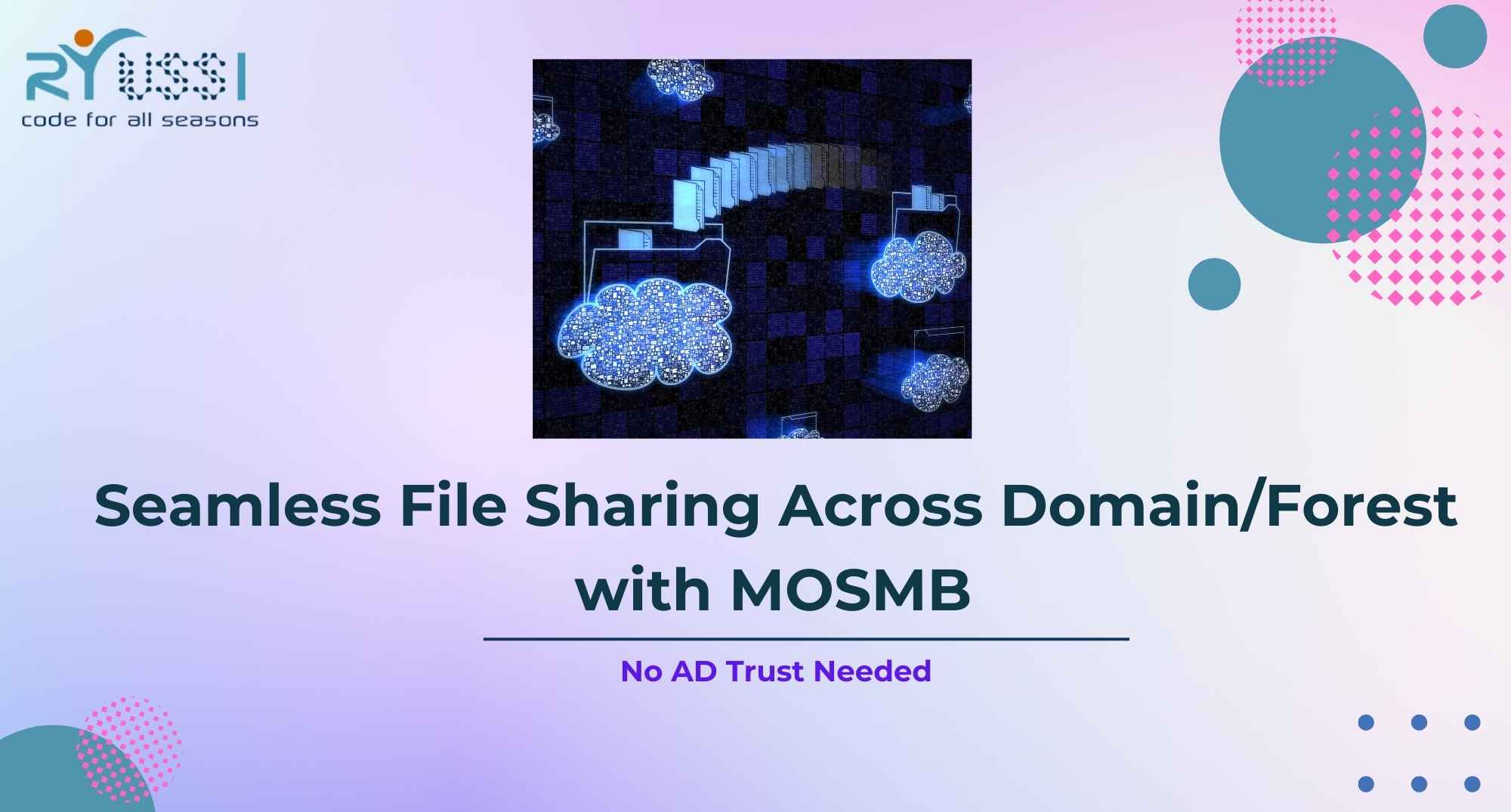
MoSMB and SMB Leasing: Optimizing File Sharing for Modern Storage Needs
MoSMB is a high-performance, enterprise-grade implementation of the Server Message Block (SMB) protocol, specifically designed to address the needs of modern storage environments. One of its standout features is its advanced support for SMB leasing, which enhances performance, scalability, and efficiency in file-sharing operations. By optimizing client caching and reducing network communication overhead, MoSMB’s leasing mechanism ensures rapid file access and consistent operations, even in high-demand or high-latency environments. With features like support for RDMA (SMB Direct), MoSMB delivers unparalleled leasing performance, making it an ideal choice for industries requiring large-scale data handling, such as media production, cloud storage, and big data analytics.
Key Features of SMB Leasing (Including MoSMB Enhancements)
Client Caching
- Leasing allows a client to cache file data, metadata, and directory information locally. This reduces the number of round-trips to the server, significantly improving performance for read and write operations.
- MoSMB optimizes client caching mechanisms to deliver high-performance caching, making it ideal for demanding workloads such as media editing, big data, and high-latency environments.
Lease Types
- Read Caching Lease (R): Allows the client to cache read data, reducing the need for repeated read requests to the server.
- Write Caching Lease (W): Permits the client to cache write data, deferring write operations to the server to reduce latency.
- Handle Caching Lease (H): Enables the client to cache file handles, allowing the client to open and close files without communicating with the server for each operation.
- MoSMB supports advanced SMB 3.x features, ensuring that caching types are implemented with minimal overhead and maximum reliability.
Improved Efficiency
- By reducing the number of requests to the server, leasing improves overall efficiency and scalability. This is particularly beneficial in high-latency network environments or when dealing with large files.
- MoSMB Efficiency: MoSMB’s lightweight, high-performance architecture further reduces latency, enhancing efficiency in scenarios requiring real-time file access.
Compatibility with NTFS
- The leasing mechanism is compliant with NTFS (New Technology File System) semantics, ensuring that file system operations remain consistent and reliable.
- MoSMB ensures seamless interoperability with NTFS-compliant systems, making it a reliable choice for enterprise-grade file operations.
Similarities to NFS Delegation
- SMB leasing is conceptually similar to NFS (Network File System) delegation, where the client is granted temporary control over certain file operations to improve performance.
Benefits of SMB Leasing (with MoSMB Enhancements)
- Performance:
- Significant reduction in network traffic and latency, leading to faster file access and operations.
- Leveraging RDMA (Remote Direct Memory Access), MoSMB achieves unparalleled performance in high-demand scenarios.
- Scalability:
- Better handling of multiple clients accessing the same files, improving the scalability of the file server.
- MoSMB is optimized for scale-out architecture, making it highly suitable for enterprise environments with large numbers of concurrent users.
- Reliability:
- Ensures consistent file operations even in case of failures.
- Continuous availability features in MoSMB ensure minimal downtime and uninterrupted access to critical files.
Example Scenario
In a typical scenario, when a client requests a file from the server, the server grants a lease to the client. Depending on the type of lease (read, write, or handle), the client can cache data locally and perform operations without continuously communicating with the server. This mechanism reduces the load on the server and accelerates client-side operations.
- MoSMB Context: With MoSMB, this scenario is further enhanced by features like SMB Multichannel, which allows multiple network connections to be used concurrently for faster file transfers, and advanced caching algorithms that ensure high performance even under heavy workloads.
Conclusion
SMB leasing is a powerful feature that enhances the performance and efficiency of file operations over a network. By allowing clients to cache data and reduce round-trips to the server, it significantly improves the user experience in environments where rapid file access is crucial.
MoSMB Value Addition: MoSMB takes SMB leasing to the next level by also offering enterprise-grade performance, enhanced scalability, and continuous availability. It’s an ideal solution for modern, high-demand use cases like media and entertainment, cloud storage, and big data applications.






